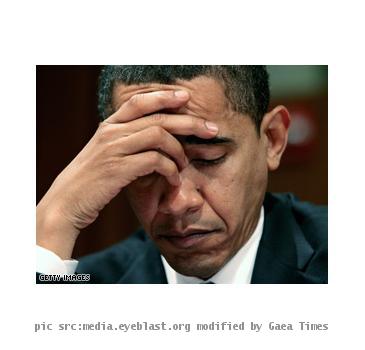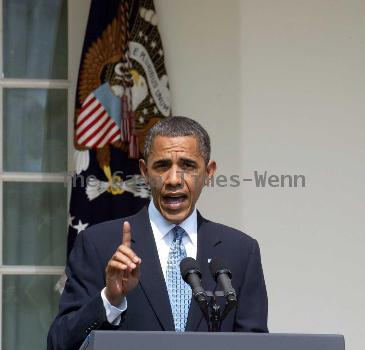As peace talks about to get under way, Israel faces difficult choice on settlement freeze
By Josef Federman, APMonday, August 23, 2010
Israel faces difficult choice on settlement freeze
JERUSALEM — Even before peace talks with the Palestinians begin, Israel’s government is fiercely debating a key concession: whether to extend a slowdown of West Bank settlement construction.
Israeli officials confirmed Monday that the government is in quiet talks with the United States in search of a “creative” solution that will allow at least some limited construction to take place after Israel’s 10-month moratorium ends on Sept. 26.
The officials said Prime Minister Benjamin Netanyahu is well aware of the high stakes.
Caving in to U.S. and Palestinian pressure to extend the freeze could bring down the conservative Israeli governing coalition. But resuming settlement construction could spell disaster for the fledgling peace talks.
“Many options are being discussed. It’s not that simple,” said Foreign Ministry spokesman Yigal Palmor.
Palestinian officials said Monday that President Mahmoud Abbas had sent a letter to the U.S threatening to withdraw from the negotiations, which are set to begin next week in Washington, if the settlement freeze ends.
“If Israel resumes settlement activities in the Palestinian territories, including east Jerusalem, we cannot continue negotiations,” Palestinian negotiator Saeb Erekat said, quoting from the letter. He said the document also was sent to other members of the “Quartet” of Mideast mediators, the EU, U.N. and Russia.
U.S. State Department spokesman P.J. Crowley said Washington understands the issue’s importance and will make sure it is discussed at the start of negotiations.
“We are very mindful of the Palestinian position, and once we are into direct negotiations we expect that both parties will do everything within their power to create an environment for those negotiations to continue constructively,” he said.
Israel and the Palestinians appear to be jostling for position before the formal launch of negotiations on Sept. 2 at the White House. The Palestinians are taking a tough line toward settlements, while Netanyahu this week laid down key security demands.
The roughly 120 Jewish settlements that dot the West Bank have long been a sore point in Mideast peacemaking. Israel began settling the territory soon after capturing it along with Gaza and east Jerusalem in the 1967 war.
The Palestinians say the settlements, now home to roughly 300,000 Israelis interspersed among some 2.4 million Palestinians, are gobbling up land they claim for a future state. The international community considers them illegal, and President Barack Obama has been an outspoken critic.
Under intense U.S. pressure, Netanyahu imposed the slowdown last November to draw the Palestinians to the negotiating table. The move barred approval of new housing construction, though hundreds of homes already being built were allowed to be completed.
Netanyahu quietly imposed a similar slowdown in east Jerusalem early this year after a run-in with the U.S. over Israeli policies in the area.
Israel considers east Jerusalem to be an indivisible part of its capital and has annexed the area, but the international community does not recognize the annexation and considers the ring of Jewish neighborhoods built there to be illegal settlements. The Palestinians seek east Jerusalem as their capital.
Netanyahu, a longtime ally of the settlement movement, has said the freeze is a one-time gesture. But he has not spoken publicly on the matter since the U.S. announced the upcoming resumption of peace talks last Friday.
Obama has made Mideast peace a top priority and is sure to put heavy pressure on Netanyahu to leave the freeze in place. At the same time, Netanyahu will face an internal uprising within his coalition, which is dominated by nationalist and religious parties allied with settlers, if he maintains the status quo.
Officials close to Netanyahu confirmed that his seven-member inner Cabinet has been discussing the matter, adding that quiet talks are under way with the Americans to reach a compromise.
They spoke on condition of anonymity because they were discussing a secret diplomatic matter.
In Washington, a U.S. official, also speaking on condition of anonymity, confirmed the dialogue with Israel and said no decisions have been taken.
Dan Meridor, one of the more moderate members of the Cabinet, told Israel TV on Monday that he believes construction should resume only in areas that are sure to remain under Israeli control in a peace deal.
“There is no logic in building in territory intended for the Palestinian state,” he said. “By the same reason, there is no logic not to build in territories that will be inside Israel.”
This is a reference to so-called settlement “blocs” — densely populated communities mostly located along the Israeli frontier with the West Bank where some 80 percent of the settler population is concentrated. In past negotiations, Israel has offered to “swap” an equivalent amount of territory in exchange for these settlements.
Meridor stressed that he was voicing a personal opinion, and refused to say what other members of the inner Cabinet believe. But the Israeli officials said a majority of the body rejects any compromise. It also is far from certain whether the Americans or Palestinians would agree to this idea.
Associated Press writers Mohammed Daraghmeh in Ramallah, West Bank, Ian Deitch in Jerusalem and Matthew Lee in Washington contributed to this report.
Tags: Barack Obama, District Of Columbia, International Agreements, Israel, Jerusalem, Middle East, North America, Palestinian Territories, Territorial Disputes, United States, West Bank





